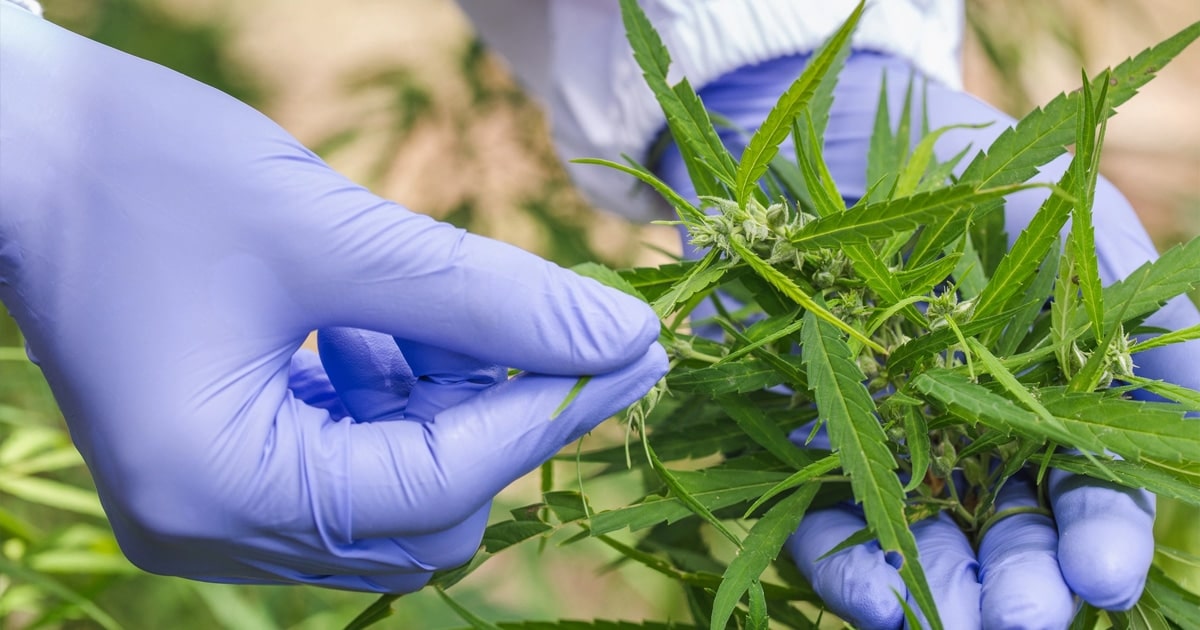Recent industry news has seen a hop latent viroid devastating Massachusetts’ marijuana crops. Highly transmissible but difficult to detect, this hop latent viroid, dependent on its host metabolism for replication, is now reducing cannabis yields as well as its quality.
Adding further strain to cannabis operators and local growers who have already been confronted with business headwinds, the hop latent viroid’s effect on significantly reducing yields is creating a further cause for concern.
The Origins Of The Hop Latent Viroid
In 1988, industry researchers identified the hop latent viroid as a primitive plant disease from the hop plant in beer production. The hop latent viroid, a single-strand, circular infectious RNA, first emerged in 2012 within the California commercial cannabis sector. This emergence was noticed due to branches growing sideways, discolored shrunken leaves and lower potency and volume in cannabis harvests. In 2019, the hop latent viroid was identified by industry researchers yet again.
Fast forward from its origins to today, and cannabis testing labs and cultivation experts state that the hop latent viroid is emerging faster due to the exchange of cannabis clones and seeds across state borders. Its expansion is also further fueled by the increase in licensed growing facilities which search for desirable strains.

Damaging To Yields, Viroid Negatively Impacts Projections And Revenues
It is forecasted that companies and cannabis operators are less likely to make money back on their crops.
According to news reports, “90 percent of cultivation sites in California from 2018 to 2021 had at least some infected plants, and estimate the blight may have already cost the US cannabis industry up to $4 billion in lost yields.”
No Longer A California Problem But An International One
Currently, the viroid has been identified in California, Canada, Spain and Portugal. State regulators, as well as workers and executives at cannabis testing labs and commercial cultivation facilities in Massachusetts, have warned that the hop latent viroid is becoming increasingly common.
“As the market grows and more states legalize and more companies try to push into different states and share their genetics, the risk of introducing the viroid every time you get a new strain is just going to increase,” reports online news sources.
The Implementation Of Rigorous Controls
To keep the hop latent viroid at bay, it is advised to minimize, if not eliminate, contact between plants, between shears and leaves and between seeds and hands. News reports suggest, “Cultivators with an infected crop essentially have only two choices: Cull the affected plants or produce inferior pot in smaller quantities.”
It is important to action prevention in this case, meticulously sanitize pruners and equipment and pay close attention to testing plants. Whether or not cultivators, breeders and facilities will be called upon to test all new strains before establishing full-scale production is still unknown. However, where money is available as well as time, testing is advised to avoid further viroid contamination.
Currently, some producers are in the process of investigating new ways of genetic exchange, and the Cannabis Control Commission has been called on to loosen the restriction to clone plants from tissue cultures.
For now, the problem of the hop latent viroid has largely fallen to growers themselves, and it is up to them to prevent the further expansion of this hazardous plant disease.

Enjoyed that first hit? Come chill with us every week at the Friday Sesh for a freshly packed bowl of the week’s best cannabis news!
- Trial Begins for Ex-Rohnert Park Officer Accused of Corruption, Highlighting Failures in Cannabis Law Enforcement
- From Los Angeles to Berlin: How U.S. Cannabis Growers Can Lead in Europe — with Germany as the Launchpad
- Federal Judge Upholds Gun Ban for Cannabis Users Despite State Legalization
- Czech Republic Takes Historic Step Toward Cannabis Reform
- Case Study: Financial Litigation Support for a Cannabis Business
- Oregon’s Ryan’s Law Bill Stalls Again, Advocates Vow to Continue the Fight















